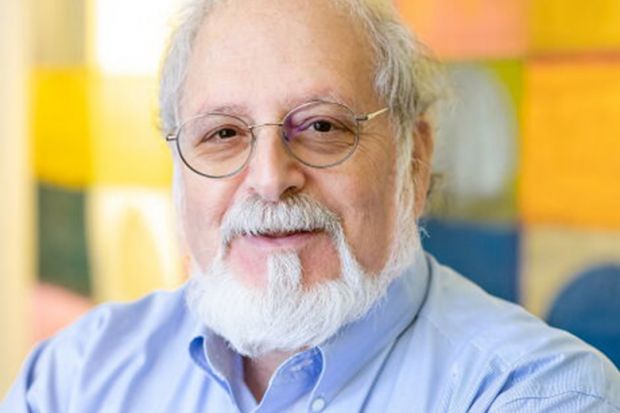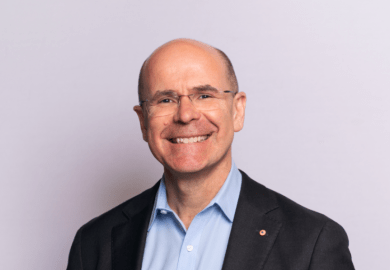A top China specialist has become the first to resign from a leading US research university out of frustration with its “restrictive” policies on China collaborations.
Denis Simon, who teaches strategy and entrepreneurship at the Kenan-Flagler Business School at the University of North Carolina at Chapel Hill, steps down from his post on 31 August – claiming that holding such positions is becoming increasingly difficult because of worsening tensions between the US and China.
“I realised there was a brick wall in front of me,” the scholar told Times Higher Education, adding that he felt UNC had adopted a “restrictive set of policies on China”, driven by the fear that it could be seen as “too chummy” with the Asian superpower and ultimately lose federal funding.
Professor Simon, who joined UNC in January from Duke University, where he was executive vice-chancellor of Duke Kunshan University in China from 2015 to 2020, said he was leaving because he felt he needed to take a “stand” against the growing “lack of forward-mindedness” on China ties in US academia.
He said he had faced undue bureaucracy when organising research trips to China, been blocked from taking students on his popular MBA course to visit the country, and the university had tried to shut down an informal policy discussion he had arranged between colleagues and Chinese embassy staff.
Decisions were justified by vaguely defined “security concerns” and to supposedly “minimise risk” – although he said leaders did not clarify “from what and from whom”.
Professor Simon maintains that the risks were negligible. “It’s not like I’m taking a nuclear research scientist from China and flying them in and putting them in front of our nuclear physics lab,” he said.
He thought that the UNC administrators’ response was representative of the “restrictive, close-minded approaches” now being taken in US universities more broadly, with a breakdown of US-China links that he believes ultimately harms both scholarship and diplomacy.
“The most important thing to me was the principle – it’s just not right what’s going on,” he said, noting the contrast with the policy in the 1970s, when he did his undergraduate course. “Universities were visionaries…now they’ve become a bastion of conservatism [and] narrow-mindedness.”
Today, there are roughly 400 US students in China, down from the peak of 15,000 before the pandemic, but roughly 370,000 Chinese students in the US. Like his colleagues, Professor Simon fears the imbalance will hurt bilateral ties and inflict “grave damage” on future US foreign policy.
“We have a terrible situation now emerging,” he said. “We are going to miss out on a whole generation of students and scholars with expertise on the ground in China…who understand the ebb and flow of life on mainland and the political environment.”
Professor Simon said he was not “actively looking” for a new job, but was busy with several projects – among them consulting on the renewal of the US-China Science and Technology Agreement. For now, he is enjoying being an independent scholar, he said.
“Maybe my future is not to be tied institutionally in a way that limits my degree of freedom, but to take advantage of the freedom I have now.”
UNC noted that under the State Human Resources Act, it could not comment on personnel matters. However, a spokesperson told THE that the university had a “steadfast commitment to maintaining the integrity of research”.
“We seek to identify and manage any potentially conflicting relationships to preserve transparency and independent decision-making [and] we take very seriously legitimate concerns about the need to safeguard US academic research from improper foreign influence,” they said.
Register to continue
Why register?
- Registration is free and only takes a moment
- Once registered, you can read 3 articles a month
- Sign up for our newsletter
Subscribe
Or subscribe for unlimited access to:
- Unlimited access to news, views, insights & reviews
- Digital editions
- Digital access to THE’s university and college rankings analysis
Already registered or a current subscriber? Login








